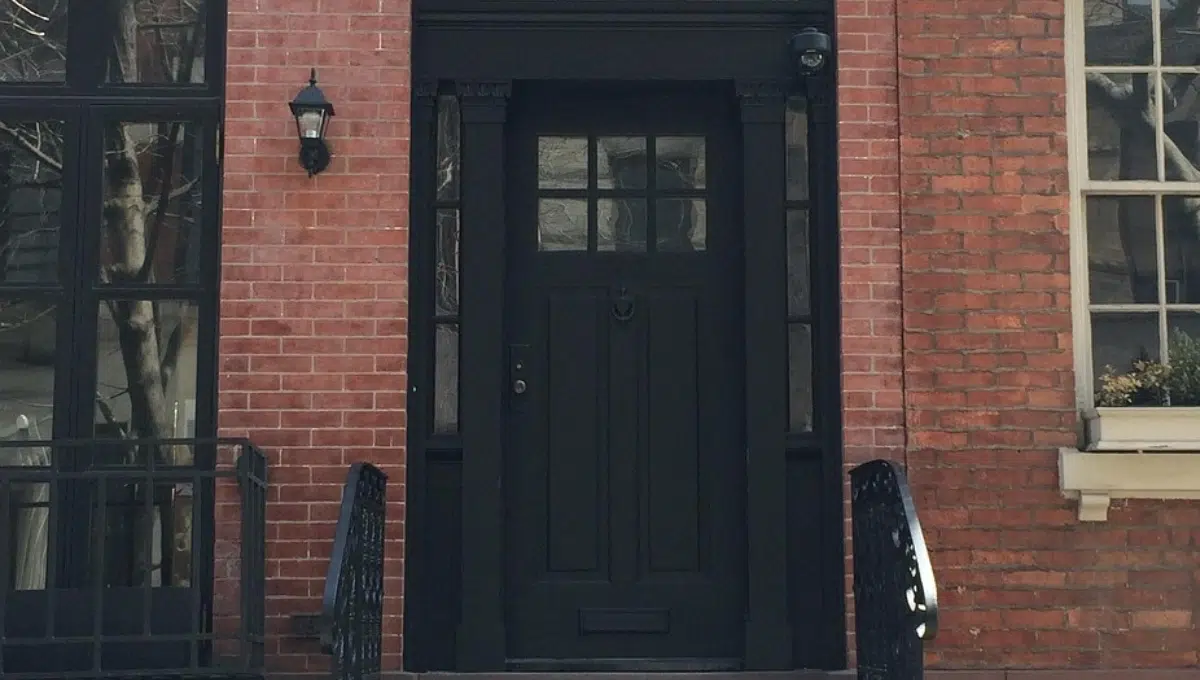Picture this: You’ve just signed the papers for your dream home, or maybe you’ve sold your house after months of negotiations. Amid the excitement—or relief—there’s a lingering question: What happens to the home insurance? Does it follow the property to the new owner, or does it vanish into thin air once the keys change hands?
For many homeowners and buyers in the U.S., this is a confusing gray area. Missteps here could leave you uninsured, overpaying, or tangled in legal headaches. Let’s unravel this mystery together.
What Is Home Insurance, and Why Does It Matter?
Home insurance isn’t just a formality; it’s a financial safety net. It protects your home—and everything in it—from disasters like fires, storms, theft, or lawsuits.
For most Americans with a mortgage, it’s also a lender requirement. But here’s the catch: home insurance is tied to the person, not the property. This distinction is key when ownership changes hands.
Key Components of Home Insurance
- Dwelling Coverage: Repairs or rebuilds your home if damaged.
- Personal Property: Covers belongings like furniture or electronics.
- Liability Protection: Shields you from lawsuits if someone’s injured on your property.
- Additional Living Expenses: Pays for temporary housing if your home’s uninhabitable.
When a home is sold, these protections don’t automatically transfer. Let’s dig into why.
Can Home Insurance Be Transferred to a New Owner?
The short answer? No, home insurance cannot be directly transferred to a new owner. Policies are written for the homeowner, not the house itself. When you sell your home, your insurance doesn’t tag along with the deed—it’s tied to your name, your risks, and your financial profile.
Why It Doesn’t Transfer
- Personalized Risk Assessment: Insurers evaluate you—your credit score, claims history, and lifestyle (e.g., do you own a dog?). A new owner has a different profile.
- Coverage Needs Differ: The buyer might want more or less coverage based on their belongings or renovation plans.
- Legal Ownership: Once the sale closes, you no longer have an “insurable interest” in the property—meaning you can’t insure something you don’t own.
What Happens to the Seller’s Policy?
When you sell, your policy doesn’t evaporate instantly. You’ll need to cancel it, typically effective on the closing date. Most insurers will refund any unused premium. For example, if you paid for a year but sell after six months, you could get half your money back.
Seller’s Policy Options at Closing
| Option | Action Required | Outcome |
|---|---|---|
| Cancel Policy | Notify insurer of sale date | Refund for unused premium |
| Keep Until Renewal | Do nothing (not recommended) | Risk overpaying for unneeded coverage |
| Transfer to New Property | Move policy to your next home | Seamless coverage at new address |
What Buyers Need to Know About Home Insurance
If you’re buying a home, you can’t inherit the seller’s policy—but that’s not necessarily a bad thing. Starting fresh lets you tailor coverage to your needs. Here’s what to consider.
Do Buyers Need New Insurance?
Yes, absolutely. Lenders require proof of insurance before closing, often called a “binder.” Without it, your mortgage won’t go through. Even if you’re paying cash, skipping insurance is a gamble no one should take.
Can Buyers Use the Seller’s Insurer?
You can contact the seller’s insurance company, but you’re not obligated to. Shopping around often saves money. According to the Insurance Information Institute (III), the average annual premium in the U.S. is $1,272—but rates vary wildly by state. For instance:
- Florida: $1,960 (hurricane risk)
- Texas: $1,828 (tornadoes, hail)
- California: $1,380 (wildfires, earthquakes—note: earthquakes need separate coverage)
Key Fact
A 2023 National Association of Insurance Commissioners (NAIC) report found that 15% of homebuyers overpay by sticking with the seller’s insurer without comparing quotes.
Steps for Buyers
- Step 1: Get quotes from at least three insurers.
- Step 2: Share property details (age, size, location).
- Step 3: Provide your info (credit score, claims history).
- Step 4: Secure a binder before closing.
Special Scenarios: Exceptions and Gray Areas
While transferring home insurance isn’t standard, some situations blur the lines. Let’s explore these quirks.
Inherited Homes
If you inherit a house, you might “assume” the existing policy—temporarily. Insurers may let you keep it until the renewal date, but you’ll need to update it with your name and details. Check with the provider; don’t assume it’s automatic.
Divorce or Co-Ownership Changes
In a divorce, if one spouse keeps the home, the policy can sometimes be rewritten in their name. This isn’t a transfer—it’s a new policy based on the original terms.
Special Scenarios and Insurance Outcomes
| Scenario | Can Policy Stay? | What to Do |
|---|---|---|
| Inherited Property | Yes, temporarily | Update with your info |
| Divorce | Sometimes | Rewrite in new owner’s name |
| Gifted Home | No | New owner buys their own policy |
Rentals and Flips
Selling to an investor? They’ll need a landlord or commercial policy—very different from standard homeowner’s insurance.
What Sellers Should Do Before Closing
Selling a home doesn’t mean you’re off the hook for insurance until the ink dries. Here’s how to handle it.
Notify Your Insurer
Tell your agent about the sale as soon as possible. They’ll adjust your policy’s end date to match closing. Pro tip: Get this in writing to avoid disputes.
Avoid Coverage Gaps
If you’re moving to a new home, coordinate timing. Cancel your old policy only after your new one kicks in.
Finding
A 2022 III survey showed 1 in 10 sellers forgot to cancel their policy, leading to weeks—or months—of wasted payments.
How to Save Money on Home Insurance During a Transition
Whether buying or selling, this is a prime time to cut costs without skimping on protection.
For Buyers
- Bundle Policies: Combine home and auto insurance for discounts (up to 25%, per III).
- Raise Deductibles: A $1,000 deductible vs. $500 can lower premiums by 15-20%.
- Ask About Discounts: New roofs, security systems, or being claim-free can save you hundreds.
For Sellers
- Prorate Premiums: Ensure you’re not overpaying past the sale date.
- Move Coverage: Some insurers let you transfer discounts to your next policy.
Average Savings by Strategy (2023 Data)
| Strategy | Potential Savings | Notes |
|---|---|---|
| Bundling | 10-25% | Varies by insurer |
| Higher Deductible | 15-20% | Increases out-of-pocket cost |
| Security System | 5-15% | Must be professionally installed |
Common Mistakes to Avoid
The home-buying and selling process is stressful enough—don’t let insurance slip-ups add to the chaos.
Buyers’ Blunders
- Waiting Too Long: Scrambling for a policy days before closing risks higher rates.
- Underinsuring: Skimping on coverage could leave you exposed.
Sellers’ Slip-Ups
- Not Canceling: Overpaying for a home you don’t own.
- Ignoring Liability: You’re liable until closing—keep coverage active.
Key Fact
FEMA reports that 40% of U.S. homes are underinsured, often discovered after a disaster.
Final Thoughts: Your Home, Your Peace of Mind
Buying or selling a home is a milestone, a fresh chapter filled with promise—or a bittersweet goodbye to memories made. But amid the whirlwind of paperwork and moving boxes, home insurance deserves your attention. It’s not transferable, true, but that’s an opportunity—not a setback.
For sellers, it’s a chance to tie up loose ends and reclaim unused premiums. For buyers, it’s a moment to build a policy that fits like a glove, safeguarding your new beginning. Don’t let confusion or oversight steal your peace of mind.
Armed with the insights here—whether it’s canceling on time, shopping smart, or dodging common pitfalls—you’re ready to navigate this transition like a pro. Your home is more than a building; it’s your sanctuary. Protect it wisely.
FAQs: Clearing Up Confusion
Q: Can I keep my policy if I’m not living there anymore?
A: No. Vacant homes need special coverage—standard policies don’t apply.
Q: Does the buyer need insurance on day one?
A: Yes, if there’s a mortgage. Lenders demand it at closing.
Q: What if the home’s damaged before closing?
A: The seller’s policy typically covers it—but confirm with your agent.
References:
- “Homeowners Insurance Basics” – Insurance Information Institute
- “2023 Home Insurance Rate Report” – National Association of Insurance Commissioners
- “How to Save on Home Insurance” – Consumer Reports
- “Underinsurance: A Growing Problem” – FEMA
- “What Happens to Insurance When You Sell Your Home?” – Forbes Advisor







